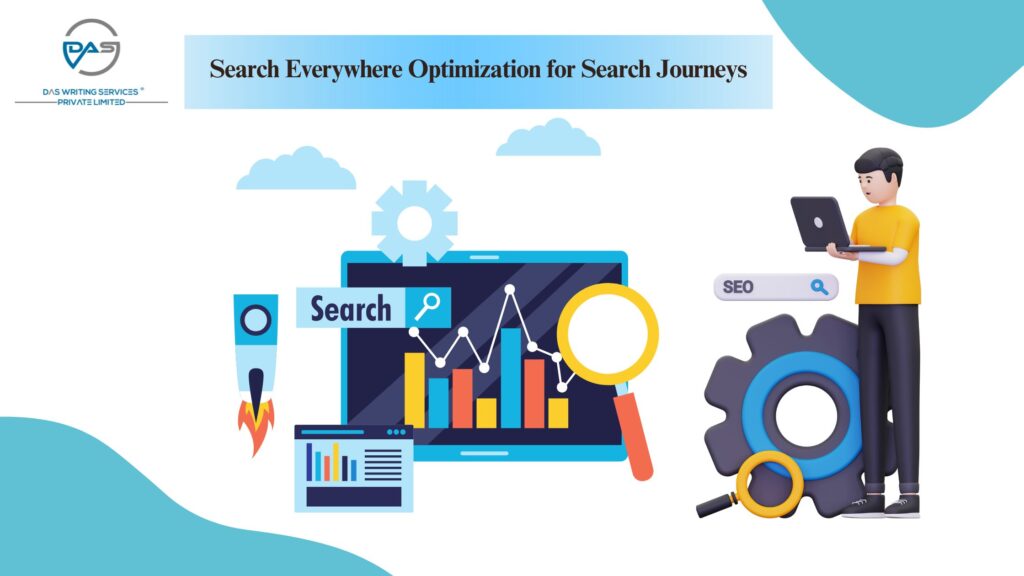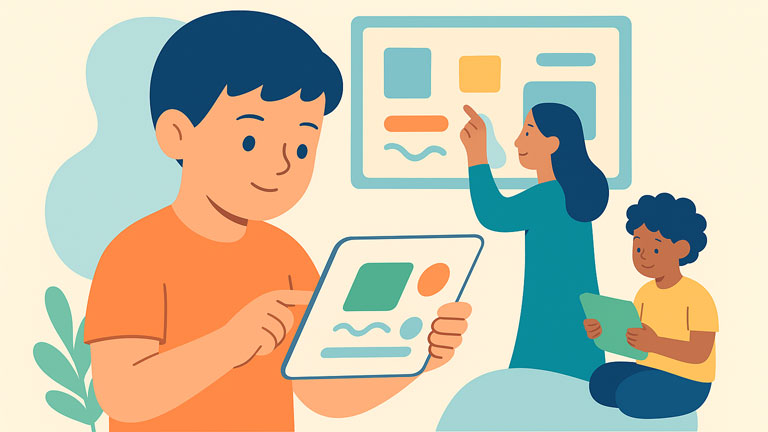Introduction
In recent years, advancements in technology have revolutionized various aspects of our lives, and one of the most significant changes is the rise of automation powered by artificial intelligence (AI). Automation, the process of using machines and computer systems to perform tasks that were traditionally done by humans, has the potential to reshape the job market as we know it. In this blog, we will explore the future of automation and discuss how AI is transforming the job market.
- The Rise of Automation
Automation has been a part of human civilization for centuries. From the Industrial Revolution to the assembly lines of the 20th century, machines have gradually taken over repetitive and mundane tasks, increasing efficiency and productivity. However, the current wave of automation is different. It is driven by AI, which enables machines to learn, adapt, and perform complex tasks that previously required human intelligence.
AI-powered automation has already made significant inroads into various industries, including manufacturing, logistics, finance, healthcare, and customer service. From robotic arms assembling products to chatbots handling customer queries, machines are becoming increasingly capable of performing tasks traditionally performed by humans.
- The Impact on the Job Market
The rapid advancement of AI and automation raises concerns about the impact on employment. While automation can enhance productivity and reduce costs for businesses, it also has the potential to displace human workers. Some jobs that are highly repetitive or rules-based are already being automated, leading to workforce reductions in certain sectors.
However, it’s important to note that automation does not necessarily mean the end of work for humans. History has shown that technological advancements often create new job opportunities that were previously unimaginable. For example, the advent of the internet and e-commerce led to the rise of entirely new industries like digital marketing and web development.
- The Role of AI in Job Transformation
Rather than completely eliminating jobs, AI is more likely to transform the nature of work. As machines take over routine and repetitive tasks, humans will have the opportunity to focus on more creative, strategic, and interpersonal aspects of their jobs. This shift will require workers to acquire new skills and adapt to changing job requirements.
AI can also augment human capabilities, making workers more productive and efficient. For example, AI-powered tools can help doctors analyze medical images more accurately, or assist lawyers in conducting legal research. By automating certain tasks, AI can free up time for professionals to focus on higher-level decision-making and problem-solving.
- New Job Opportunities
While automation may eliminate some jobs, it also creates new opportunities. The rise of AI has given birth to entirely new job roles, such as AI trainers, data scientists, machine learning engineers, and automation specialists. These roles require a deep understanding of AI technologies and the ability to develop, implement, and maintain AI systems.
Additionally, as machines take over repetitive tasks, there will be a growing demand for jobs that require human skills, such as creativity, critical thinking, emotional intelligence, and interpersonal communication. Roles that involve empathy, complex problem-solving, and human interaction, such as healthcare providers, educators, and social workers, are less likely to be fully automated.
- The Need for Lifelong Learning
As automation accelerates, the need for lifelong learning becomes crucial. Workers must continuously update their skills to remain relevant in the job market. Technical skills related to AI, data analysis, and programming will be in high demand, but soft skills will also play a vital role.
Education systems and employers need to collaborate to provide accessible and affordable reskilling and upskilling programs. Governments can incentivize lifelong learning through policies and programs that support individuals in acquiring new skills throughout their careers. By investing in education and training, we can ensure that the workforce is prepared for the future job market.
- Ethical Considerations
As AI becomes more prevalent in the workplace, there are ethical considerations that need to be addressed. For example, there are concerns about bias in AI algorithms, which can perpetuate existing inequalities and discrimination. It is crucial to ensure that AI systems are designed and implemented in a way that is fair, transparent, and accountable.
There are also concerns about the impact of automation on income inequality. If large numbers of jobs are automated without adequate measures in place, it could widen the gap between the rich and the poor. Policymakers and businesses must proactively address these concerns by implementing policies that promote inclusive growth and by redistributing the benefits of automation.
Conclusion
Automation powered by AI is transforming the job market, creating both challenges and opportunities. While certain jobs may be automated, new roles will emerge, and human workers will have the opportunity to focus on higher-level tasks. Lifelong learning and the acquisition of new skills will be critical for individuals to adapt to the changing job market.
As we embrace the future of automation, it is essential to ensure that it is deployed ethically and responsibly. Collaboration between governments, businesses, and educational institutions will be key in navigating this transformation and ensuring that the benefits of automation are shared by all.
The future of automation is not a dystopian scenario where humans are replaced by machines, but rather a future where humans and machines work together, leveraging each other’s strengths to create a more productive and inclusive society. By embracing the opportunities presented by AI and automation, we can shape a future that benefits everyone.
The Future of Automation: How Artificial Intelligence is Transforming the Job Market
Introduction
In recent years, advancements in technology have revolutionized various aspects of our lives, and one of the most significant changes is the rise of automation powered by artificial intelligence (AI). Automation, the process of using machines and computer systems to perform tasks that were traditionally done by humans, has the potential to reshape the job market as we know it. In this blog, we will explore the future of automation and discuss how AI is transforming the job market.
- The Rise of Automation
Automation has been a part of human civilization for centuries. From the Industrial Revolution to the assembly lines of the 20th century, machines have gradually taken over repetitive and mundane tasks, increasing efficiency and productivity. However, the current wave of automation is different. It is driven by AI, which enables machines to learn, adapt, and perform complex tasks that previously required human intelligence.
AI-powered automation has already made significant inroads into various industries, including manufacturing, logistics, finance, healthcare, and customer service. From robotic arms assembling products to chatbots handling customer queries, machines are becoming increasingly capable of performing tasks traditionally performed by humans.
- The Impact on the Job Market
The rapid advancement of AI and automation raises concerns about the impact on employment. While automation can enhance productivity and reduce costs for businesses, it also has the potential to displace human workers. Some jobs that are highly repetitive or rules-based are already being automated, leading to workforce reductions in certain sectors.
However, it’s important to note that automation does not necessarily mean the end of work for humans. History has shown that technological advancements often create new job opportunities that were previously unimaginable. For example, the advent of the internet and e-commerce led to the rise of entirely new industries like digital marketing and web development.
- The Role of AI in Job Transformation
Rather than completely eliminating jobs, AI is more likely to transform the nature of work. As machines take over routine and repetitive tasks, humans will have the opportunity to focus on more creative, strategic, and interpersonal aspects of their jobs. This shift will require workers to acquire new skills and adapt to changing job requirements.
AI can also augment human capabilities, making workers more productive and efficient. For example, AI-powered tools can help doctors analyze medical images more accurately, or assist lawyers in conducting legal research. By automating certain tasks, AI can free up time for professionals to focus on higher-level decision-making and problem-solving.
- New Job Opportunities
While automation may eliminate some jobs, it also creates new opportunities. The rise of AI has given birth to entirely new job roles, such as AI trainers, data scientists, machine learning engineers, and automation specialists. These roles require a deep understanding of AI technologies and the ability to develop, implement, and maintain AI systems.
Additionally, as machines take over repetitive tasks, there will be a growing demand for jobs that require human skills, such as creativity, critical thinking, emotional intelligence, and interpersonal communication. Roles that involve empathy, complex problem-solving, and human interaction, such as healthcare providers, educators, and social workers, are less likely to be fully automated.
- The Need for Lifelong Learning
As automation accelerates, the need for lifelong learning becomes crucial. Workers must continuously update their skills to remain relevant in the job market. Technical skills related to AI, data analysis, and programming will be in high demand, but soft skills will also play a vital role.
Education systems and employers need to collaborate to provide accessible and affordable reskilling and upskilling programs. Governments can incentivize lifelong learning through policies and programs that support individuals in acquiring new skills throughout their careers. By investing in education and training, we can ensure that the workforce is prepared for the future job market.
- Ethical Considerations
As AI becomes more prevalent in the workplace, there are ethical considerations that need to be addressed. For example, there are concerns about bias in AI algorithms, which can perpetuate existing inequalities and discrimination. It is crucial to ensure that AI systems are designed and implemented in a way that is fair, transparent, and accountable.
There are also concerns about the impact of automation on income inequality. If large numbers of jobs are automated without adequate measures in place, it could widen the gap between the rich and the poor. Policymakers and businesses must proactively address these concerns by implementing policies that promote inclusive growth and by redistributing the benefits of automation.
Conclusion
Automation powered by AI is transforming the job market, creating both challenges and opportunities. While certain jobs may be automated, new roles will emerge, and human workers will have the opportunity to focus on higher-level tasks. Lifelong learning and the acquisition of new skills will be critical for individuals to adapt to the changing job market.
As we embrace the future of automation, it is essential to ensure that it is deployed ethically and responsibly. Collaboration between governments, businesses, and educational institutions will be key in navigating this transformation and ensuring that the benefits of automation are shared by all.
The future of automation is not a dystopian scenario where humans are replaced by machines, but rather a future where humans and machines work together, leveraging each other’s strengths to create a more productive and inclusive society. By embracing the opportunities presented by AI and automation, we can shape a future that benefits everyone.
Also Visit sprunki horror Endless Fun Awaits!



